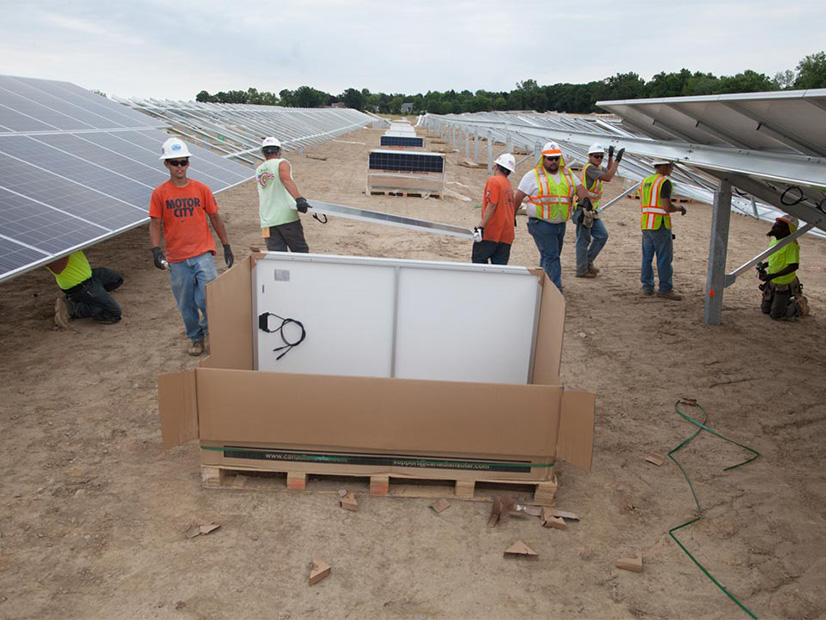Michigan’s Clinton County will impose a one-year moratorium on new, large-scale renewable energy projects to give it time to update its planning ordinance.
The moratorium, approved by the county commission Tuesday in a 6-1 vote, affects 11 townships that use the county’s planning ordinance. Five townships that have their own planning ordinances — including the larger townships of DeWitt and Bath — are unaffected, said county Commissioner Val Vail-Shirey. Also unaffected will be any proposals for individual renewable energy projects on homes or businesses.
Vail-Shirey said she hoped a 19-member citizens advisory committee, created in the resolution approving the moratorium, would be able to complete work on changes to the county’s planning ordinance by the year’s end. The committee may hold its first meeting as soon as June 15.
The moratorium should not be viewed as an attempt to block large renewable projects but as a way to update the county’s ordinance to deal with issues regarding larger renewable projects, Vail-Shirey said in an interview.
Commission Chair Bob Showers also said he was not opposed to solar arrays but that the county, which is north of Lansing, needed more time to look at utility-level wind and solar projects, since more of them could be expected in future years.
There are no active projects under discussion now, though commissioners have said a company has indicated interest in a 1,000-acre solar project.
The moratorium will take effect once the county posts notice of the action. A Clinton County spokesperson said the notice should be posted this weekend.
Vail-Shirey said discussions on a moratorium arose after the county approved its last large renewable project earlier this year. That effort required many amendments, which led Vail-Shirey and others to decide a broader look at the planning ordinance was needed.
The 19-member committee will include representatives from all 11 townships relying on the county’s ordinance, as well as two county commission members and six citizen representatives. The only commissioner voting no on the moratorium, John Andrews, has said the committee should have equal numbers of renewable energy supporters and opponents.
Vail-Shirey said she intends to have discussions with Michigan’s utilities, academics, agricultural interests and businesses, as well as local citizens before the advisory committee makes any recommendations to alter the county planning ordinance.
Vail-Shirey said the committee will meet in public and that she hoped it would develop a draft proposal by September.
Before the commission voted on the proposal, a spokesperson for CMS Energy (NYSE: CMS) said the utility would work with the county but that the moratorium could be a detriment to discussions the utility is having with landowners on possible projects.
Any changes made in the county’s planning ordinance should respect the rights of farmers who see solar as a “viable economic opportunity” along with continuing the county’s agricultural character, the company said.


